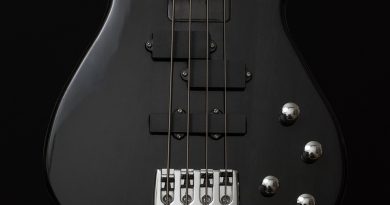Unlocking Your Inner Guitarist: Top Tips for Improvisation
Unlocking Your Inner Guitarist: Top Tips for Improvisation
Improvisation is a key skill for any guitarist looking to express themselves creatively and enhance their playing abilities. Whether you’re a beginner or a seasoned veteran, mastering the art of improvisation can take your music to new heights. In this article, we will explore some top tips for unlocking your inner guitarist and improving your improvisational skills.
1. Master the Basics
Before you can dive into the world of improvisation, it’s essential to have a strong foundation in basic guitar techniques. This includes familiarizing yourself with different scales, chords, and playing styles. Practice your scales regularly and experiment with different chord progressions to build a strong musical vocabulary. The better you understand the fundamentals of guitar playing, the more confident and creative you will be when improvising.
2. Listen to Your Favorite Guitarists
One of the best ways to improve your improvisational skills is to study the techniques of your favorite guitarists. Listen to a wide range of genres and styles to expose yourself to different playing techniques and approaches to improvisation. Pay attention to how they use scales, chords, and phrasing in their solos, and try to incorporate these elements into your own playing. By learning from the pros, you can gain valuable insights into how to create memorable and expressive guitar solos.
3. Practice, Practice, Practice
The key to mastering improvisation is practice. Set aside dedicated time each day to work on your improvisational skills, experimenting with different scales, chord progressions, and soloing techniques. Start by practicing simple improvisations over backing tracks or metronomes, gradually increasing the complexity of your solos as you become more comfortable. The more you practice improvisation, the more confident and creative you will become in your playing.
4. Develop Your Ear
Improvisation is as much about listening as it is about playing. Develop your ear by regularly practicing ear training exercises, such as identifying intervals, chords, and melodies by ear. This will help you to intuitively recognize musical patterns and develop a stronger sense of musicality when improvising. A well-trained ear will also enable you to respond more dynamically to the music around you and make more informed decisions when creating solos.
5. Experiment with Different Scales and Modes
To keep your improvisations fresh and engaging, experiment with different scales and modes in your playing. Try exploring non-traditional scales, such as the harmonic minor or whole tone scale, to add a unique flavor to your solos. Practice improvising in different modes, such as Dorian, Mixolydian, and Lydian, to explore new tonalities and expand your musical palette. By constantly challenging yourself to step outside of your comfort zone, you can unlock new creative possibilities in your improvisations.
6. Focus on Phrasing and Dynamics
A great guitar solo is not just about playing fast and flashy licks—it’s also about phrasing and dynamics. Pay attention to how you articulate your notes, using techniques such as bending, sliding, and vibrato to add expressive depth to your playing. Experiment with different rhythmic patterns and dynamics to create tension and release in your solos, building a narrative arc that engages the listener. By focusing on phrasing and dynamics, you can elevate your improvisations from mere technical exercises to emotive and compelling musical statements.
7. Play with Other Musicians
One of the best ways to improve your improvisational skills is to play with other musicians. Whether jamming with a band or collaborating with fellow guitarists, playing with others can help you develop your listening and communication skills, as well as expand your musical horizons. Learning to adapt and respond to the musical ideas of others in real-time can push you to think creatively and develop new approaches to improvisation. Plus, playing with others is simply a lot of fun and can inspire you to take your playing to the next level.
Unlocking your inner guitarist and mastering the art of improvisation takes time, dedication, and a willingness to experiment. By following these top tips and incorporating them into your practice routine, you can enhance your musicality, creativity, and confidence as a guitarist. So pick up your guitar, turn on a backing track, and let your inner guitarist shine through in your improvisations. Happy playing!






